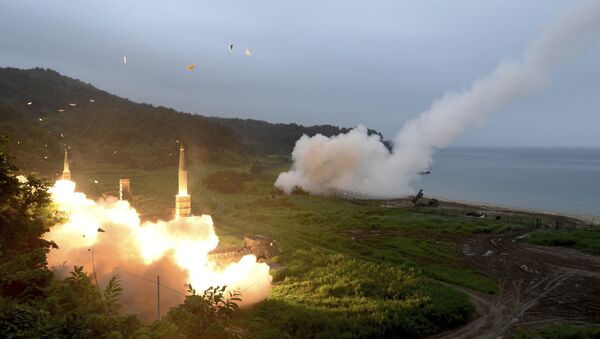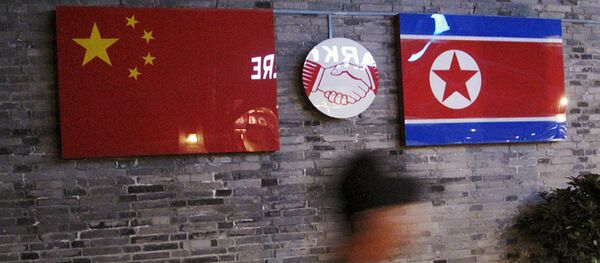KIEV (Sputnik) – Earlier in the day, The New York Times newspaper reported citing an expert analysis and classified assessments by US intelligence agencies, North Korea’s successes in testing an intercontinental ballistic missile may be attributed to purchases of rocket engines from Ukraine.
"Ukraine always adheres to the international obligations it took upon itself, therefore enterprises of Ukraine’s defense and aerospace sector did not supply weapons or military technologies to North Korea," Turchynov said as quoted by his press service.
According to him, Ukraine considers North Korea’s authorities "totalitarian, unpredictable and dangerous, and supports all sanctions against this country."
"This information is groundless, is provocative in nature and was probably instigated by Russian security services to cover up their own crimes," the Ukrainian official said commenting on the media report.
Ukraine's Yuzhmash aerospace equipment manufacturer, in its turn, said in a statement that the organization had nothing to do with North Korea's space or defense-related missile programs.
"The assumption of the publication's authors and the 'expert' cited by them regarding the possible connection of Ukraine with the progress of the DPRK in the development of missile technologies has nothing to do with reality. Yuzhmash has never before and does not have anything to do with North Korean space or defense missile programs," Yuzhmash said.
"YUZHMASH expresses sincere regret over the article, which was published by The New York Times provocative nature, based on an incompetent ‘expert’ opinion," the statement added.
The NYT cited a study by Michael Elleman, a senior fellow for missile defense with the International Institute for Strategic Studies think tank, published earlier in the day, which suggested that North Korea is unlikely to have designed and manufactured the engines for its newest missiles Hwasong-12 and Hwasong-14, since the country has no track record in developing similar engines. The study suggested that Pyongyang must have acquired high-performance liquid-propellant engine (LPE) from abroad.
According to the report, North Korean operatives were known to be seeking missiles in Ukraine. The study cited the example of two North Korean nationals arrested and convicted in Ukraine in 2012 for attempts to acquire missile hardware developed by Yuzhnoye.
Elleman told The New York Times that the engines likely came from Ukraine, probably through illegal channels, but it was unclear how many Pyongyang had and "whether the Ukrainians are helping them now."


